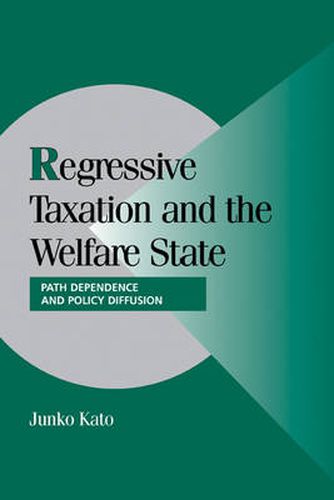Readings Newsletter
Become a Readings Member to make your shopping experience even easier.
Sign in or sign up for free!
You’re not far away from qualifying for FREE standard shipping within Australia
You’ve qualified for FREE standard shipping within Australia
The cart is loading…






Government size has attracted much scholarly attention. Political economists have considered large public expenditures a product of leftist rule and an expression of a stronger representation of labour interest. Although the size of the government has become the most important policy difference between the left and right in post-war politics, the formation of the government’s funding base is also important. Junko Kato finds that the differentiation of tax revenue structure is path dependent upon the shift to regressive taxation. Since the 1980s, the institutionalisation of effective revenue raising by regressive taxes during periods of high growth has ensured resistance to welfare state backlash during budget deficits and consolidated the diversification of state funding capacity among industrial democracies. This book challenges the conventional wisdom that progressive taxation goes hand-in-hand with large public expenditures in mature welfare states and qualifies the partisan centred explanation that dominates the welfare state literature.
$9.00 standard shipping within Australia
FREE standard shipping within Australia for orders over $100.00
Express & International shipping calculated at checkout
Stock availability can be subject to change without notice. We recommend calling the shop or contacting our online team to check availability of low stock items. Please see our Shopping Online page for more details.
Government size has attracted much scholarly attention. Political economists have considered large public expenditures a product of leftist rule and an expression of a stronger representation of labour interest. Although the size of the government has become the most important policy difference between the left and right in post-war politics, the formation of the government’s funding base is also important. Junko Kato finds that the differentiation of tax revenue structure is path dependent upon the shift to regressive taxation. Since the 1980s, the institutionalisation of effective revenue raising by regressive taxes during periods of high growth has ensured resistance to welfare state backlash during budget deficits and consolidated the diversification of state funding capacity among industrial democracies. This book challenges the conventional wisdom that progressive taxation goes hand-in-hand with large public expenditures in mature welfare states and qualifies the partisan centred explanation that dominates the welfare state literature.